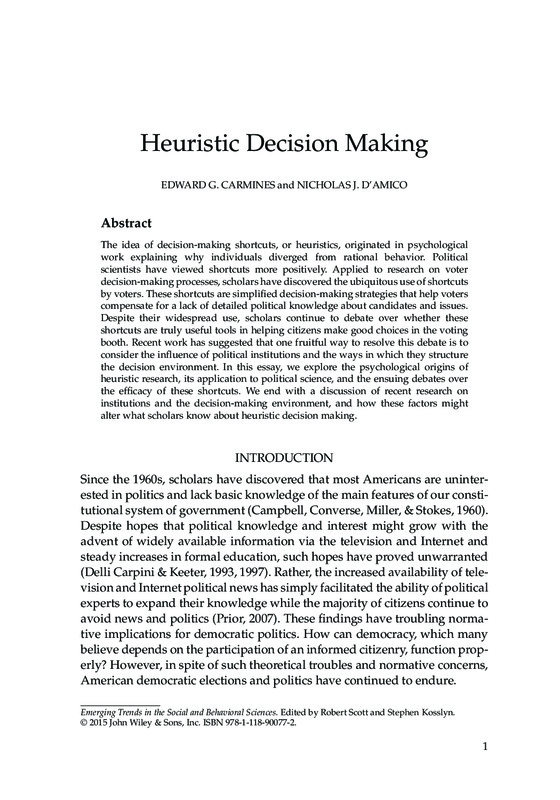Heuristic Decision Making
Title
Heuristic Decision Making
Author
Carmines, Edward G.
D'Amico, Nicholas J.
Research Area
Cognition and Emotions
Topic
Decision Making
Abstract
The idea of decision‐making shortcuts, or heuristics, originated in psychological work explaining why individuals diverged from rational behavior. Political scientists have viewed shortcuts more positively. Applied to research on voter decision‐making processes, scholars have discovered the ubiquitous use of shortcuts by voters. These shortcuts are simplified decision‐making strategies that help voters compensate for a lack of detailed political knowledge about candidates and issues. Despite their widespread use, scholars continue to debate over whether these shortcuts are truly useful tools in helping citizens make good choices in the voting booth. Recent work has suggested that one fruitful way to resolve this debate is to consider the influence of political institutions and the ways in which they structure the decision environment. In this essay, we explore the psychological origins of heuristic research, its application to political science, and the ensuing debates over the efficacy of these shortcuts. We end with a discussion of recent research on institutions and the decision‐making environment, and how these factors might alter what scholars know about heuristic decision making.
